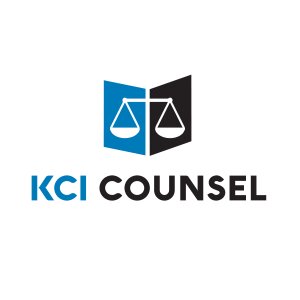Best Admiralty & Maritime Lawyers in Vietnam
Share your needs with us, get contacted by law firms.
Free. Takes 2 min.
Or refine your search by selecting a city:
List of the best lawyers in Vietnam
About Admiralty & Maritime Law in Vietnam
Admiralty and Maritime law in Vietnam involves legal principles related to maritime activities. Positioned along key maritime routes in the South China Sea, Vietnam boasts a significant coastline, which necessitates a robust legal framework for regulating maritime commerce, navigation, seafarers' rights, and marine environmental protection. The country's maritime laws are influenced by international conventions and agreements as well as its own domestic legislation. Vietnamese Admiralty and Maritime law governs shipping activities, maritime contracts, and disputes arising from these contexts.
Why You May Need a Lawyer
There are various situations where you might need legal advice in Vietnam's Admiralty and Maritime sector. These include:
- Resolving disputes over charter party agreements.
- Addressing claims arising from shipping accidents or collisions.
- Negotiating maritime contracts and financing agreements.
- Pursuing claims for cargo loss or damage.
- Ensuring compliance with maritime regulations and environmental laws.
- Dealing with crew member disputes or employment issues.
- Navigating through insurance claims related to maritime activities.
- Representation in cases involving marine pollution or hazardous waste.
- Advisory services for ship registration and related legal procedures.
- Handling legal aspects of maritime business transactions.
Local Laws Overview
Key aspects of local Admiralty and Maritime law in Vietnam include:
- Maritime Code: Vietnam's Maritime Code provides the primary legal framework for shipping operations, maritime safety, and the rights and responsibilities of parties involved in maritime activities.
- Ship Registration: Legal procedures for vessel registration, flagging, and certification are outlined for domestic and international ships operating in Vietnamese waters.
- Cargo Liabilities: Regulations regarding liabilities and responsibilities for cargo loss or damage during transit are specified.
- Environmental Regulations: Vietnam enforces maritime environmental laws aimed at preventing and controlling pollution from ships and protecting marine ecosystems.
- Dispute Resolution: Procedures and venues for resolving maritime disputes, including jurisdictional issues and arbitration, are detailed.
Frequently Asked Questions
What is the Maritime Code of Vietnam?
The Maritime Code of Vietnam provides legal guidelines for maritime operations, including safety, shipping, and the treatment of maritime disputes.
How do I register a ship in Vietnam?
Ship registration in Vietnam involves submitting relevant documentation to the Vietnam Registry for compliance with national and international standards.
What regulations apply to marine pollution in Vietnam?
Vietnam implements marine pollution regulations aligned with international standards, focusing on preventing and controlling ship-generated pollution.
Can foreign shipowners operate in Vietnamese waters?
Yes, foreign shipowners can operate in Vietnamese waters, but they must comply with local regulations and may need permits or licenses.
What are the common legal issues in maritime contracts?
Common issues include breach of contract, non-performance, disputes over charter party terms, and liability for cargo damage.
Is arbitration available for maritime disputes in Vietnam?
Yes, arbitration is a recognized means of resolving maritime disputes in Vietnam, with the Vietnam International Arbitration Centre (VIAC) assisting in these matters.
What are the penalties for breaching maritime laws in Vietnam?
Penalties for breaches can include fines, suspension of licenses, and in severe cases, criminal sanctions, depending on the nature of the violation.
How can I ensure compliance with maritime safety regulations?
Ensuring compliance involves regular training of crew members, adhering to safety protocols, and maintaining vessels to required safety standards.
What steps are involved in cargo claims for damage?
The process usually involves notifying the carrier promptly, documenting the damage, and seeking compensation through legal proceedings or negotiation.
Who regulates the maritime industry in Vietnam?
The Vietnam Maritime Administration is the primary regulatory body overseeing the maritime industry, implementing national and international standards.
Additional Resources
For those seeking more information or assistance, consider the following resources:
- Vietnam Maritime Administration: The national authority responsible for implementing maritime laws and regulations.
- Vietnam International Arbitration Centre (VIAC): Providing arbitration services for resolving maritime disputes.
- Vietnam Seafarers Association: An organization supporting seafarers' rights and welfare.
- International Maritime Organization (IMO): Offers guidance on international maritime standards applicable in Vietnam.
- Local Law Firms: Consulting with local law firms specializing in Admiralty and Maritime law can provide tailored legal advice.
Next Steps
If you require legal assistance in Vietnam related to Admiralty and Maritime matters, consider taking the following steps:
- Identify Your Specific Needs: Clearly outline the legal issues you are facing or questions you need answered.
- Consult a Specialist Lawyer: Seek out a lawyer or law firm with expertise in Admiralty and Maritime law for detailed advice and representation.
- Gather Documentation: Collect all relevant documentation and evidence pertain to your maritime issue for review by your legal counsel.
- Explore Alternative Dispute Resolution: Consider arbitration or mediation as potential avenues for resolving disputes efficiently.
- Stay Informed: Keep abreast of any changes to maritime laws and regulations by consulting official publications and news from reliable sources.
Lawzana helps you find the best lawyers and law firms in Vietnam through a curated and pre-screened list of qualified legal professionals. Our platform offers rankings and detailed profiles of attorneys and law firms, allowing you to compare based on practice areas, including Admiralty & Maritime, experience, and client feedback.
Each profile includes a description of the firm's areas of practice, client reviews, team members and partners, year of establishment, spoken languages, office locations, contact information, social media presence, and any published articles or resources. Most firms on our platform speak English and are experienced in both local and international legal matters.
Get a quote from top-rated law firms in Vietnam — quickly, securely, and without unnecessary hassle.
Disclaimer:
The information provided on this page is for general informational purposes only and does not constitute legal advice. While we strive to ensure the accuracy and relevance of the content, legal information may change over time, and interpretations of the law can vary. You should always consult with a qualified legal professional for advice specific to your situation.
We disclaim all liability for actions taken or not taken based on the content of this page. If you believe any information is incorrect or outdated, please contact us, and we will review and update it where appropriate.
Browse admiralty & maritime law firms by city in Vietnam
Refine your search by selecting a city.
















